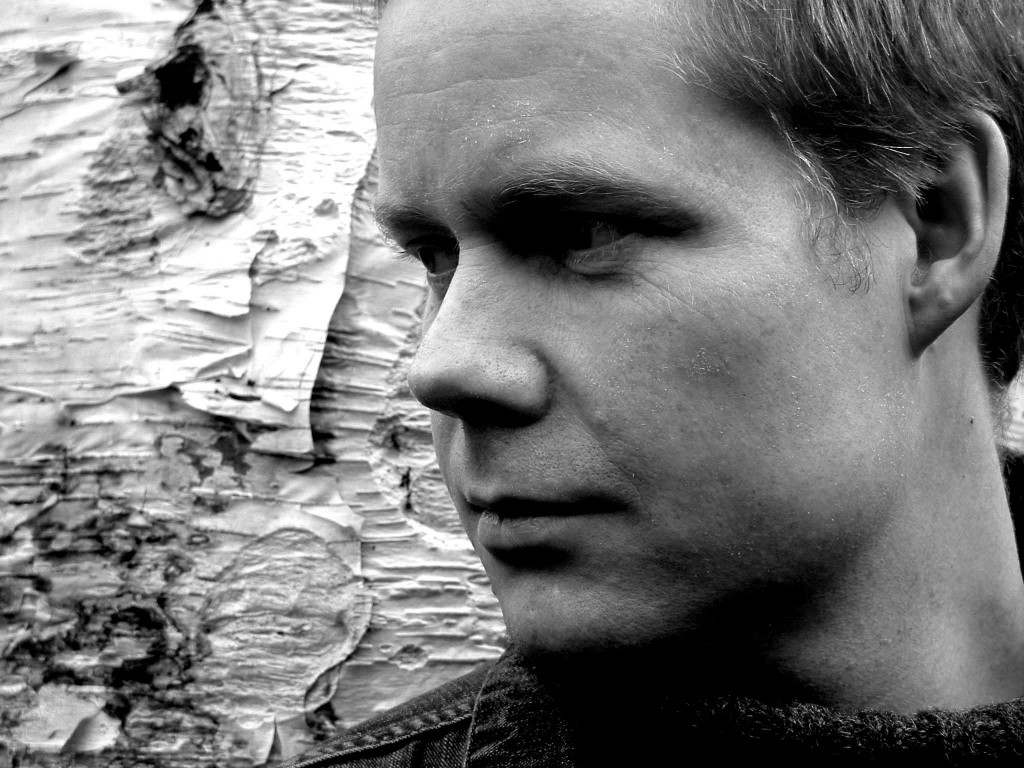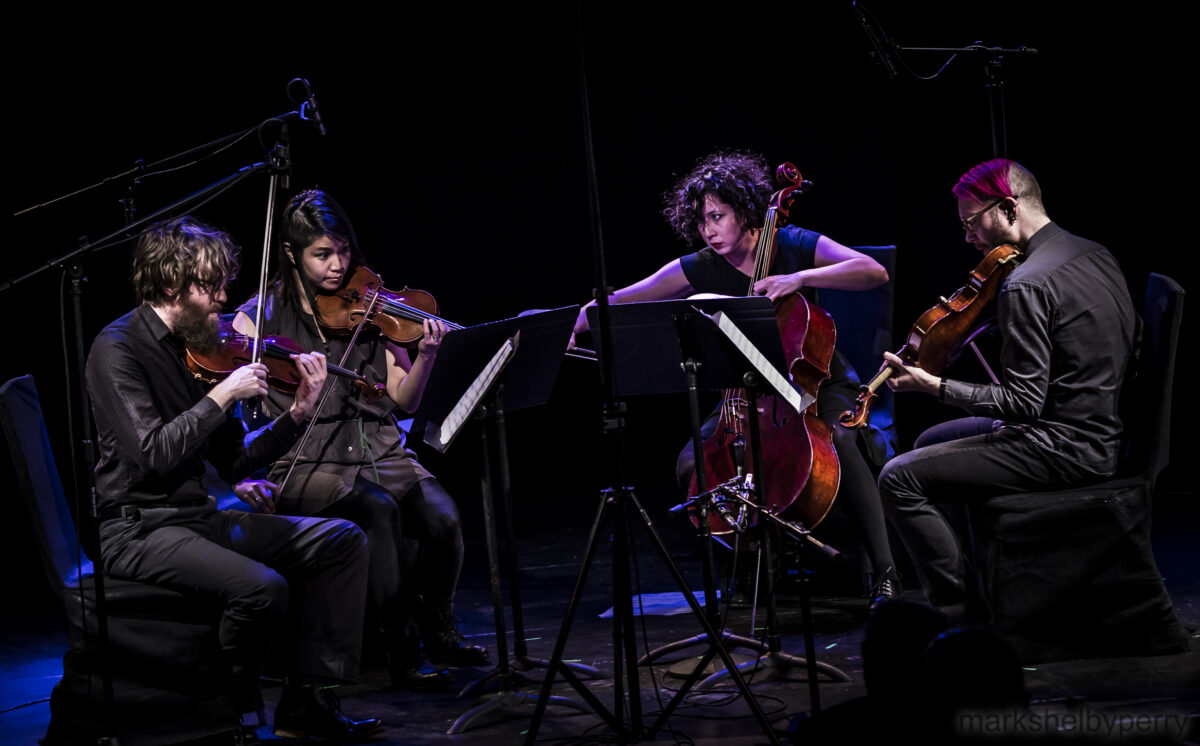Mar
26
with ACME & presented by Le Poisson Rouge & Wordless Music
Thu March 26th, 2015
8:00PM
Main Space
Minimum Age: All Ages
Doors Open: 7:00PM
Show Time: 8:00PM
Event Ticket: $35
Day of Show: $40
This is a general admission, standing event.
This concert will be recorded by Q2 Music and archived at q2music.org
3
Max Richter: Memoryhouse / Songs From Before and Infra

Composer, pianist, producer, remixer, collaborator extraordinaire: Max Richter defies definition. An enigma he may be; what is beyond argument is that he is one of the most prolific musical artists of his generation.
Inspired equally by The Beatles and Bach, punk rock and ambient electronica, Richter blends baroque beauty with minimalist methodology, classical orchestration with modern technology.
The result is a monumental body of work encompassing concert music, operas, ballets, art and video installations, multiple film, theatre and television scores and a series of acclaimed solo albums incorporating poetry and literature.
His latest challenges include having taken one of the most recognisable pieces of music from the classical canon – Vivaldi’s Four Seasons – and “recomposed” it for the 21st century.
Born in Germany and brought to Britain as a small boy, Max began taking piano lessons at a young age. His fast-growing knowledge of classical music was tempered by his discovery of punk rock: a voyage of discovery that continued through Stockhausen and the American minimalists.
He studied at Edinburgh University, graduated to the Royal Academy of Music and completed his studies in Florence under the influential avant-garde composer Luciano Berio.
“I had a very classical musical training but I was totally into what was going on around me at the time in the UK in the early 1980s – and that was electronica and punk,” Max explains. “The first gigs I went to were The Clash and Kraftwerk when I was 14. I loved the primitive energy of punk but at the same time I was studying classical music academically and using soldering irons to build analogue synthesisers in my bedroom. For me those things have always flowed together.”
These are the diverse influences at work in Richter’s music: the minimalist aesthetic that traces a path from the composers of the early 1960s (Reich, Glass) through to punk rock and Brian Eno’s invention of ambient electronica in the 1970s; a formal classical education and the experimentalism of the avant-garde; the cut-up methods of electronic dance music and today’s cannibalistic remix culture.
Richter began his career as a founding member of Piano Circus, a contemporary classical group that played and commissioned works by Steve Reich, Arvo Pärt, Philip Glass and Brian Eno. Max stayed for ten years and five albums, gradually incorporating electronic elements and found sounds – the building blocks of what would become one of his trademarks.
Next came a period of collaboration with electronic musicians The Future Sound of London (1996–98), and Mercury Music Prize winners Roni Size and Reprazent (2000).
Breaking away from his collaborators, Richter embarked on what would become his first “solo” album, the orchestral work Memoryhouse (2002), which included electronic sounds, recordings and voices. Later used as the soundtrack of a BBC documentary, Auschwitz – The Nazis And The Final Solution (2005), it was recently given its live premiere at the Barbican (2014).
His next album, The Blue Notebooks (2004), was his first with Fat Cat Records and featured actress Tilda Swinton reading extracts from Kafka. “One of the reasons I sent my demo to Fat Cat was because I heard the first Sigur Rós album and it sounded to me like Arvo Pärt with guitars,” he says. “So I knew it would be a good home for me.”
That was followed by Songs From Before (2006), with Robert Wyatt reading from Haruki Murakami, and an album of ringtones, 24 Postcards In Full Colour (2008).
His most recent solo album, Infra (2010), inspired by TS Eliot’s The Waste Land, features piano, electronics and a string quartet. It is an extension of Richter’s own score for a Royal Ballet-commissioned collaboration with dancer Wayne McGregor and artist Julian Opie for the Royal Opera House.
Max’s music has formed the basis of numerous other dance works, including pieces by Lucinda Childs, Netherlands Dance Theatre, Ballet du Rhin, American Ballet Theatre, Dresden Semperoper, Dutch National Ballet and Norwegian National Ballet.
Recent commissions include the chamber opera Sum, based on David Eagleman’s acclaimed book, for The Royal Opera House, London, and Mercy;, commissioned by Hilary Hahn.
In the art world, Richter has composed the soundscape The Anthropocene for Darren Almond’s film installation at London’s White Cube gallery (2010) and has twice collaborated with digital art collective rAndom International, contributing scores to the installations Future Self (Berlin 2012) and Rain Room (London 2012/New York 2013).
His film scores include the award-winning Waltz With Bashir (2007) for Israeli director Ari Folman, and his music has been used in more than 30 other films and trailers by directors including Martin Scorsese (Shutter Island, 2010), Clint Eastwood (J. Edgar, 2011), André Téchiné (Impardonnables [Unforgivable], 2011), Ridley Scott (Prometheus, 2012) and Terrence Malick (To The Wonder, 2012).
He has also produced two folk records: Sixties legend Vashti Bunyan’s comeback album Lookaftering (2005) and former Sneaker Pimps singer Kelli Ali’s Rocking Horse (2008).
Max Richter’s many awards include the European Film Award for Best Composer (for Waltz With Bashir) and further prizes for his scores for Lore and Die Fremde (When We Leave).
He has also recently won Germany’s prestigious ECHO Klassik award for the album that resulted from a 2012 invitation from Deutsche Grammophon to “recompose” Vivaldi’s Four Seasons: a widely acclaimed success that has just been re-released with additional remixes and ambient interpretations that Max calls “Shadows”, as well as a live concert DVD.
Richter picked his favourite bits of the score and reshaped them into “new objects”, layering and looping familiar fragments to reinvigorate a work diminished by overuse in elevators, TV ads and as telephone “holding music”. “I only kept about 25 per cent of the notes but there’s Vivaldi DNA in all of it,” says Max. “I kept the gestures and shapes, the textures and dynamics. There are bits of Vivaldi and bits of me daydreaming about the original, thinking aloud about it.”
Richter believes the composer would have appreciated what he has done with his 300-year-old work. “Vivaldi was a kind of rock star himself: an incredible violinist with long red hair, who formed an orchestra of young women to play his music and had women fainting at his concerts. Composers have always recycled and borrowed other composers’ work, as Vivaldi did himself, so I think he would have had some sympathy with this project.”
In March 2014, as a result of this successful partnership with the Yellow Label, Max Richter signed an exclusive contract with Deutsche Grammophon. The next chapter of his extraordinary career is now set to unfold…
Max Richter official site
Max Richter on Facebook
Max Richter on Twitter
ACME

Since 2004, led by cellist and artistic director Clarice Jensen, the American Contemporary Music Ensemble (ACME) has risen to the highest ranks of American new music through a mix of meticulous musicianship, artistic vision, engaging collaborations, and unwavering standards in every regard. The membership of the amorphous collective includes some of the brightest stars in the field. NPR calls them “contemporary music dynamos,” and Strings reports, “ACME’s absorbing playing pulsed with warm energy. . . Shared glances and inhales triggered transitions in a flow so seamless it seemed learned in a Jedi temple.” ACME was honored by ASCAP during its 10th anniversary season in 2015 for the “virtuosity, passion, and commitment with which it performs and champions American composers.”
The ensemble has performed at leading international venues including Lincoln Center, Carnegie Hall, BAM, The Kennedy Center, Washington Performing Arts, UCLA’s Royce Hall, Stanford Live, Chicago’s Millennium Park, Duke Performances, The Satellite in Los Angeles, STG Presents in Seattle, Melbourne Recital Hall and Sydney Opera House in Australia, and at festivals including the Sacrum Profanum Festival in Poland, All Tomorrow’s Parties in England, Auckland Arts Festival in New Zealand, Summer Nostos Festival in Greece, Boston Calling, and Big Ears in Knoxville, TN. ACME has performed Max Richter’s Sleep, an eight-hour lullaby for a sleeping audience, with him around the world, including at the Great Wall of China; on the piers of Auckland, New Zealand; in Hobart, Tasmania; at the Sydney Opera House; and in LA’s Grand Park, among others.
World premieres given by ACME include Clarice Jensen’s evening-length piece The Exaltation of Inanna for string quartet, guitar, and four singers; Ingram Marshall’s Psalmbook; Jóhann Jóhannsson’s Drone Mass (commissioned by ACME in 2015); Caroline Shaw’s Ritornello; Phil Kline’s Out Cold; William Brittelle’s Loving the Chambered Nautilus; Timo Andres’ Senior and Thrive on Routine; Caleb Burhans’ Jahrzeit; and many more. In 2016 at The Kitchen, ACME premiered Clarice Jensen’s transcription of Julius Eastman’s The Holy Presence of Joan d’Arc for ten cellos, the score of which had been lost since the premiere in 1981. Jensen transcribed a recording of the work to recreate the score.
ACME’s collaborators have included The Richard Alston Dance Company, Wayne McGregor’s Random Dance, Gibney Dance, Satellite Ballet, Meredith Monk, Jóhann Jóhannsson, Max Richter, actress Barbara Sukowa, filmmaker Jim Jarmusch, Blonde Redhead, Grizzly Bear, Low, Matmos, Micachu & The Shapes, Jeff Mangum, A Winged Victory for the Sullen, Roomful of Teeth, Lionheart, and Theo Bleckmann.
In March 2022, ACME released the world premiere recording of Jóhann Jóhannsson’s contemporary oratorio Drone Mass on Deutsche Grammophon, with Theatre of Voices led by Paul Hillier. Gramophone included the album on its list of Best New Classical Recordings. Of the album, Gramophone wrote, “Since Jóhann Jóhannsson’s death in 2018 at the age of only 48, his label DG has done much to promote the Icelandic composer’s posthumous reputation by releasing several soundtrack albums and retrospective collections. One nevertheless senses there exists among the many musical cues and film themes a work of real vitality, power and significance – a jewel in the crown of Jóhannsson’s creative achievements. Drone Mass may well be that work. On one level, this contemporary oratorio for voices, string quartet and electronics – commissioned by the American Contemporary Music Ensemble (ACME) led by cellist Clarice Jensen, who are superb on this recording – is typically Jóhannssonian in its uncanny juxtaposition of the strange with the familiar and its rich interplay of multiple meanings.”
ACME’s discography also includes its first portrait album, Thrive on Routine, on Sono Luminus; Jóhann Jóhannsson’s Orphée and Max Richter’s Sleep, both on Deutsche Grammophon; Fantasias with thereminist Carolina Eyck on Butterscotch Records; Joseph Byrd: NYC 1960-63, the first commercial recording of the music of rediscovered American Fluxus composer Joseph Byrd, on New World Records; William Brittelle’s electro-acoustic chamber work Loving the Chambered Nautilus, and Jefferson Friedman’s On In Love with vocalist Craig Wedren, both on New Amsterdam Records.
presented by Le Poisson Rouge & Wordless Music


